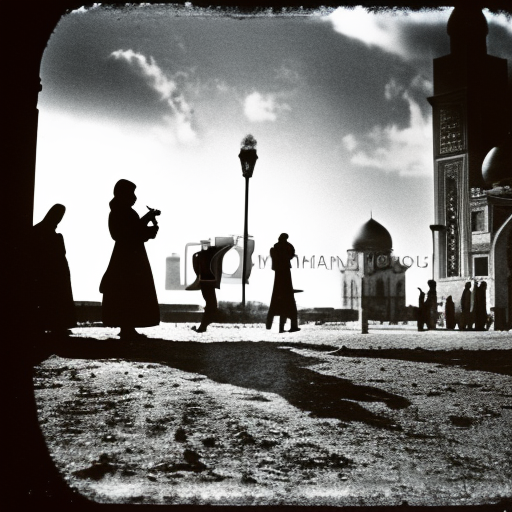Middle East Theatre of World War II
The Middle East Theatre of World War II refers to the military campaigns and battles that took place in the Middle East region during the Second World War. This theatre was of strategic importance due to its proximity to vital oil reserves and its position as a gateway to Asia and Africa. The conflict in the Middle East involved a complex web of alliances and rivalries between the Allied and Axis powers, as well as local nationalist movements.
Background
Prior to the outbreak of World War II, the Middle East was under the control of various European powers. Britain had a significant presence in the region, particularly in Egypt, Palestine, and Iraq. The British Empire relied heavily on Middle Eastern oil to fuel its war effort, making the region a crucial strategic asset.
North Africa Campaign
One of the major campaigns in the Middle East Theatre was the North Africa Campaign. It began in 1940 when Italy, under the leadership of Benito Mussolini, invaded British-controlled Egypt from its colony in Libya. The British, led by General Archibald Wavell, launched a counteroffensive and pushed the Italians back into Libya. However, the situation changed when Germany, led by Adolf Hitler, sent General Erwin Rommel and the Afrika Korps to support the Italians.
The British forces, under the command of General Bernard Montgomery, eventually defeated Rommel’s forces in the decisive Battle of El Alamein in 1942. This victory marked a turning point in the war in North Africa and forced the Axis powers to retreat. The Allies then launched an offensive and pushed the Axis forces out of North Africa, culminating in the surrender of the remaining German and Italian troops in Tunisia in May 1943.
Iran and Iraq
In addition to the North Africa Campaign, the Middle East Theatre also saw significant action in Iran and Iraq. In 1941, British and Soviet forces invaded Iran to secure its oil fields and prevent them from falling into German hands. The operation was successful, and Iran was occupied by the Allies for the duration of the war.
In Iraq, a pro-German coup led by Rashid Ali al-Gaylani threatened British control of the country. The British responded by launching an invasion and installing a more favorable government. The fighting in Iraq continued until 1943 when the British finally suppressed the rebellion.
Palestine and Syria
The conflict in the Middle East also spilled over into Palestine and Syria. The British faced resistance from Zionist groups in Palestine who sought to establish a Jewish homeland. The British responded with strict immigration restrictions, leading to increased tensions and violence between Jews and Arabs.
In Syria, the Free French forces, led by General Charles de Gaulle, fought against Vichy French forces loyal to the collaborationist government in France. The Free French eventually liberated Syria and Lebanon from Vichy control in 1941.
Conclusion
The Middle East Theatre of World War II was a complex and multi-faceted conflict. The campaigns in North Africa, Iran, Iraq, Palestine, and Syria were all interconnected and shaped by the broader global struggle between the Allied and Axis powers. The outcome of these battles had a significant impact on the balance of power in the region and the eventual outcome of the war. The Middle East Theatre demonstrated the importance of the region’s resources and strategic position, as well as the complexities of navigating local politics and alliances in a global conflict.












